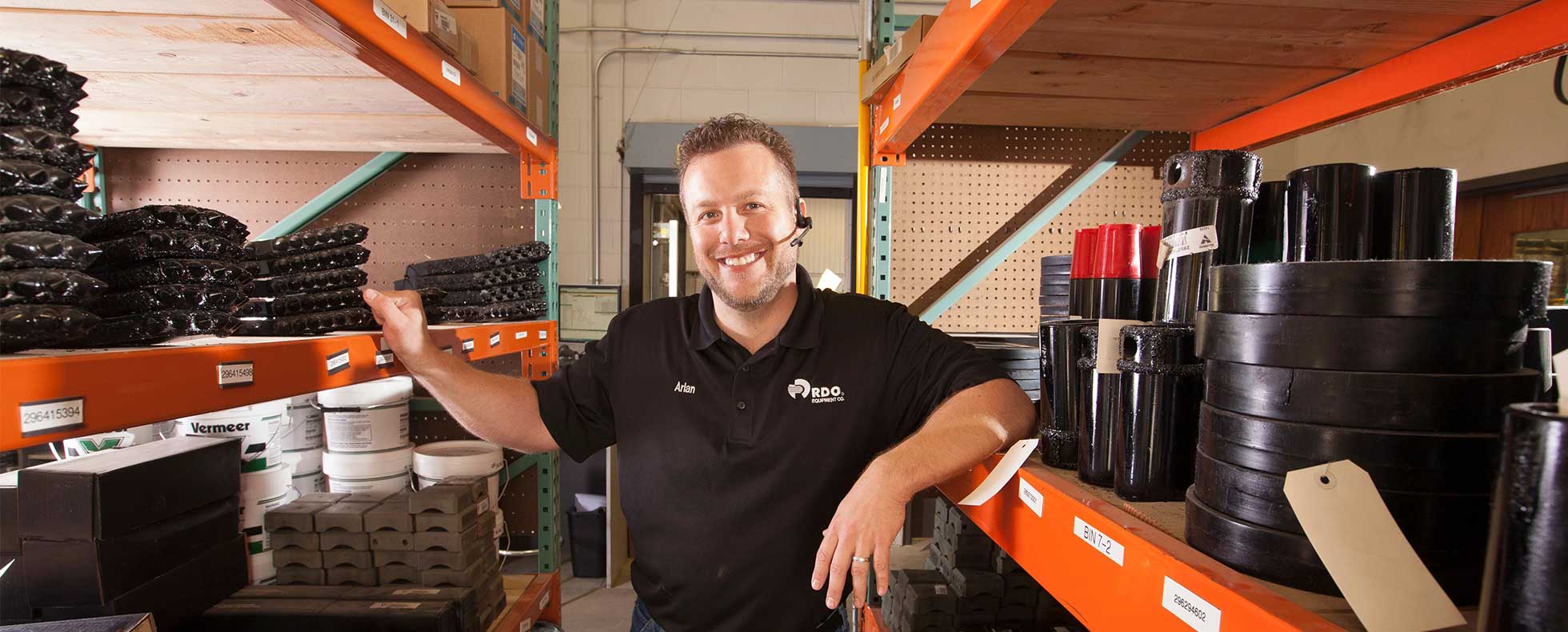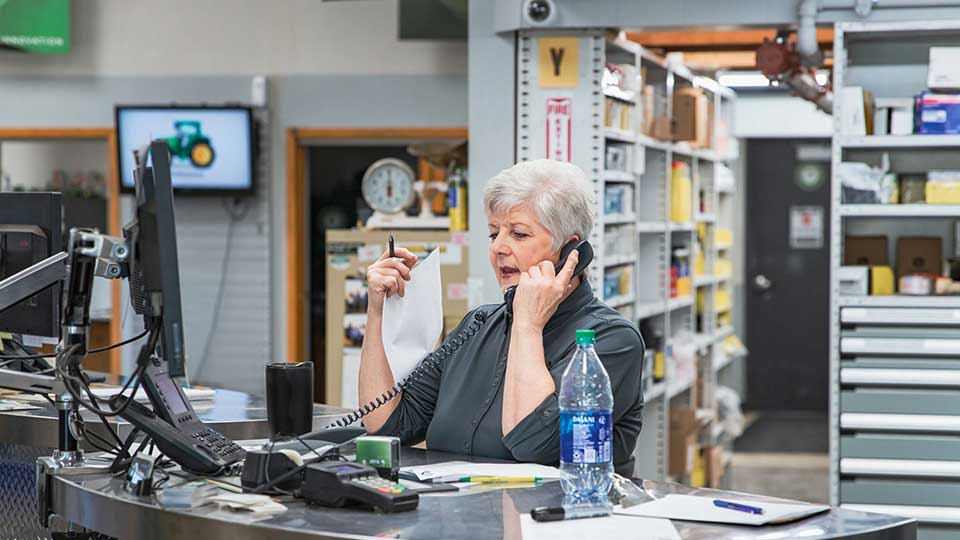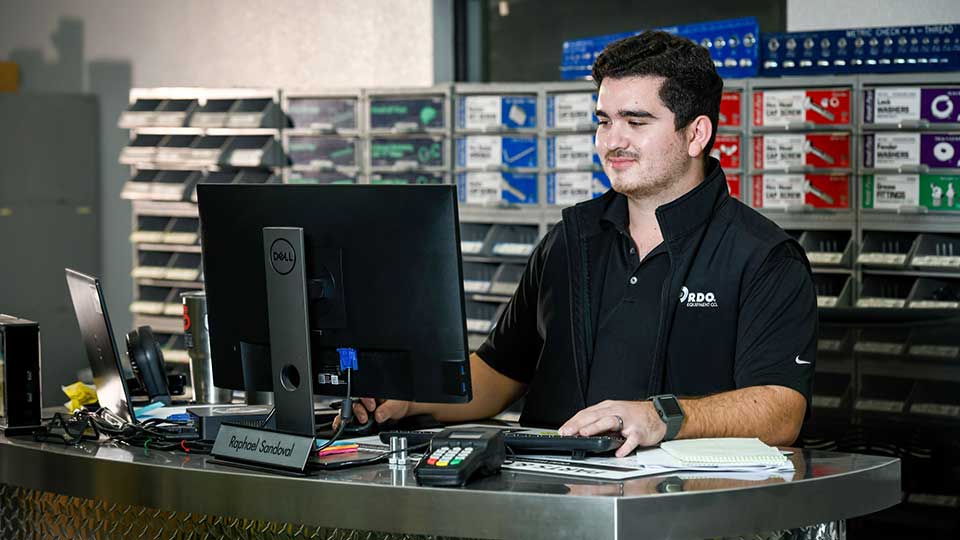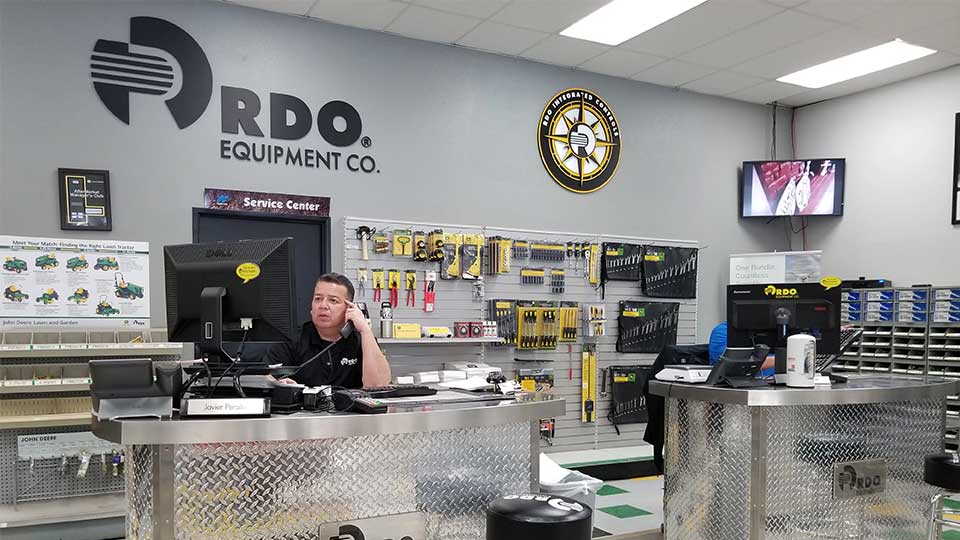
Being a parts professional is a great career. Whether you’re considering joining this profession or have been in it for a while now, you want to be as successful as possible. That’s natural.
What can you do to build a successful parts career? Are there skills you can develop now that will help you long-term?
RDO has hundreds of parts team members located around the U.S. Over the years, these people have helped our organization grow and our customers thrive. Time and time again, the most successful parts people have had similar skills.
In this article, I’ll break down the seven skills most successful parts specialists have and explain why they’re so important to getting ahead in this profession. That way, you can choose a couple to add to your skill “toolbox” to build a successful parts career.
Solid technical knowledge is very important to success as a parts specialist. In most instances, parts professionals are in customer-facing roles and are the point person for answering customer questions.
It’s important that these specialists have a good understanding of the technical makeup of the vehicles/equipment they’re selling parts for. This helps them answer questions, provide insight, pull the correct parts and fully service the customer. Being able to “speak the language” when a customer comes in the door is important.
A mechanical background and equipment knowledge can get you ahead in the parts profession.

Learning, training and development are large aspects of what a parts specialist does. Companies like to have knowledgeable parts people. The best workplaces invest heavily in the training and development of their parts staff.
To be successful in this career, you’ll need to be open to constantly learning new things. You see, parts and equipment are constantly changing (this is true across industries, product lines and equipment-types). When new technologies emerge or new products come out, parts specialists often need to learn them.
Since every vehicle has thousands of different parts, having a solid understanding of each of these options is crucial. As your career progresses, being able to learn new things and apply this knowledge to help other stakeholders (service team members, sales team members, customers) will make you successful.
As you know, a good portion of a parts specialist’s day is spent interacting with customers. This can be both over the phone or in person.
Having a good set of “people” skills like empathy and interpersonal communication are important in these roles. When a customer walks in (or calls in) with a problem, a great parts person can relate to their issue, develop some familiarity with them and clearly lay out a plan of attack for solving it.
Over time, people skills can help a parts specialist develop relationships with customers to the point where when the customer walks in, they know exactly who they want to work with. This is common at RDO stores.
This is a big one. Details are important in a parts specialist’s job. Whether it’s for inventorying products, picking the right parts off the shelves for a customer, working with internal software programs or organizing a showroom, having a keen eye for detail is an essential parts specialist skill.
The better you are at paying attention to the little things and doing jobs right the first time, the better off you’ll be in your career. While it will take some time, try your best to develop your attention to detail skills a little bit every day. Trying not to rush through tasks is a good place to start.

Sometimes as a parts specialist, it’s on you to come up with unique solutions to the problems facing you. This could mean finding another way to source a part when you hit a dead end with a manufacturer or working with a customer to find a secondary solution while a part they need is on backorder.
The ability to think critically to solve problems separates the good parts specialists from the great ones. As you get more comfortable in this field, this skill will develop somewhat naturally. However, spending some time around other professionals who have this skill and put it into practice can help you develop it.
This skill is very important to be successful in any job. Being self-motivated means you have an internal drive to complete tasks and push your department forward. As a parts specialist, being self-motivated can separate you from others, making you a productive leader in your department.
Being self-motivated is a great way to help yourself stand out with your manager. It can show up in a lot of ways, including:
This final skill might be kind of a surprise. I mean, what does competition have to do with working for an automotive or heavy equipment parts store? Great question. You see, in the business world — no matter what kind of business you’re in — it’s you against the competitors.
Your company wants to be the preferred choice for its customers.
In the parts business, customer experience and service level are important to getting repeat purchases. It can often feel like a partnership between a customer and their parts representative. For this reason, parts specialists need to have a competitive spirit, wanting to provide the best experience for every customer who walks in the door.
If you take this approach, you’ll go far in your parts career.

Becoming a successful parts specialist is about many things, and building a great skillset is only one of them. That said, you’ll go a long way if you have good technical knowledge, a competitive spirit, great interpersonal skills, pay attention to detail and are self-motivated.
Working for a company that values these skills and will invest in your development is also important to your success.
Join RDO’s parts team in a location near you where we’ll help you build your career along a stable career path. For an inside look at what it’s like to work in the parts department here, read A Day in the Life of a Parts Specialist at RDO Equipment Co. next.
If you have any questions, please don’t hesitate to contact us today. We’re more than happy to help you on your journey toward building a career you’re proud of.